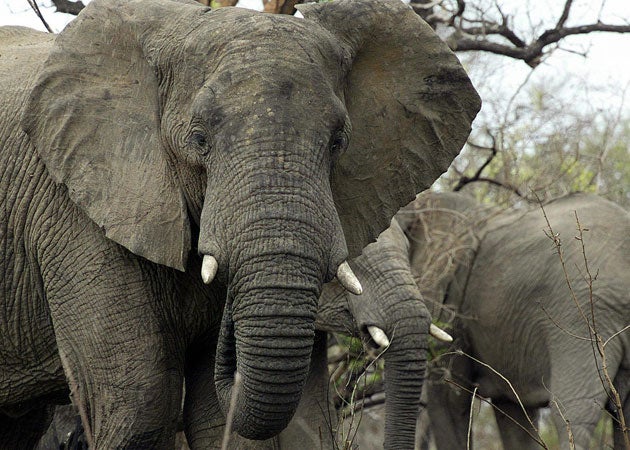Drones to be used against elephant and rhino poachers in Kenya
The scheme comes alongside harsher penalties being used against poachers

The Kenyan Government is to use drones in its fight against elephant and rhino poachers, officials announced on Tuesday.
A new law will also see tougher penalties, including longer jail terms and larger fines, imposed on offenders in an attempt to curb the rising number of well-armed criminal gangs who kill elephants for tusks and rhinos for horns.
“We will start piloting the use of drones in the Tsavo National Park eco system, one of the largest national parks in the world,” said Patrick Omondi, deputy director for wildlife conservation at the Kenya Wildlife Service.
Omondi added that the surveillance aircraft would be imported, but did not give details of how many or at what cost.
Tsavo National Park in the southeast is Kenya's largest, with sweeping plains and occasional water holes dotted with wildlife, including elephants.
Conservationists hope the new law will deter criminal networks since Kenya has emerged as a major transit route for ivory destined for Asian markets from eastern and central Africa.
The government says poaching is also harming tourism, a major foreign exchange earner.
“We attribute the problem of poaching in Kenya and other African states to growing demand and high prices offered for rhino horn and elephant ivory in the Far East countries,” William Kiprono, Kenya Wildlife Service's acting Director General told a news conference in Nairobi.
18 rhinos and 51 elephants had been killed by poachers in Kenya so far this year, said Kiprono.
Last year, 59 rhinos and 302 elephants were killed, compared with 30 rhinos and 384 elephants in 2012.
Kenyan officers seized 13.5 tonnes of ivory at the port city of Mombasa last year, mostly originating from other countries in the region. At least 249 suspects have so far been arrested this year and prosecuted for various wildlife offences.
In January, a Kenyan court convicted a Chinese man of smuggling ivory and ordered him to pay a 20-million-shillings ($233,000) fine or serve seven years in jail in the first sentence handed out since Kenya introduced a new anti-poaching law.
The scheme comes amid work by the Space for Giants charity, which received over £450,000 in donations from Independent readers followings its 2013 Elephant Campaign. The money is being spent on projects in the field by the charity.
Additional reporting by Reuters
Join our commenting forum
Join thought-provoking conversations, follow other Independent readers and see their replies
Comments